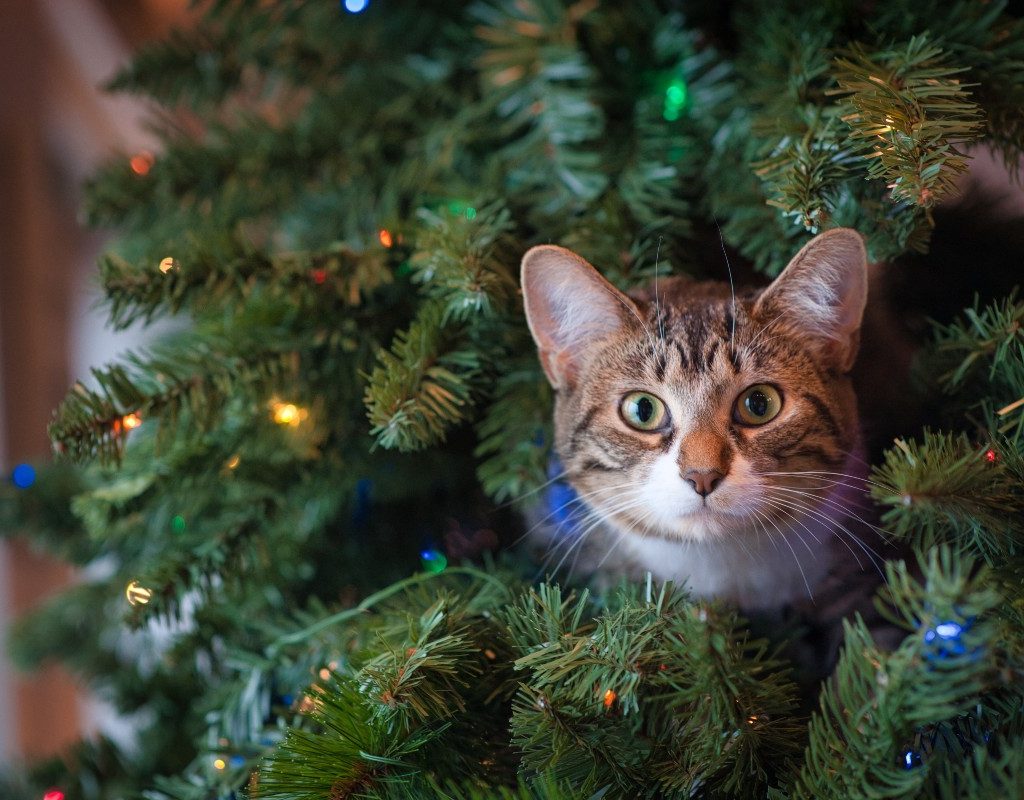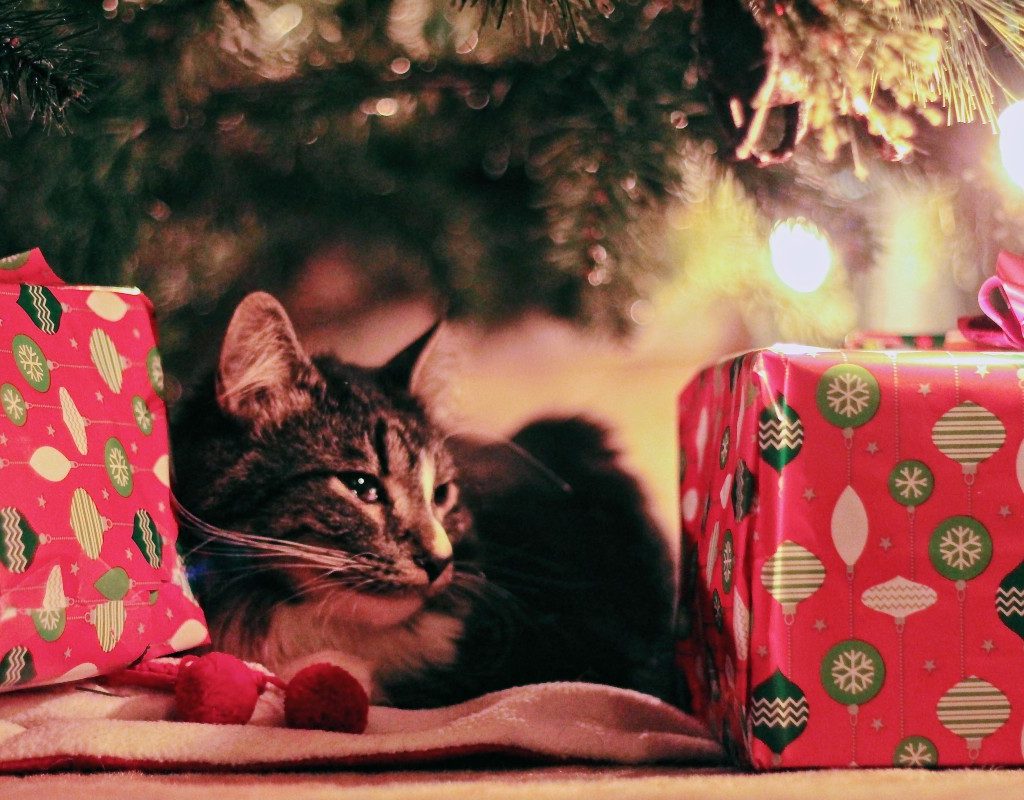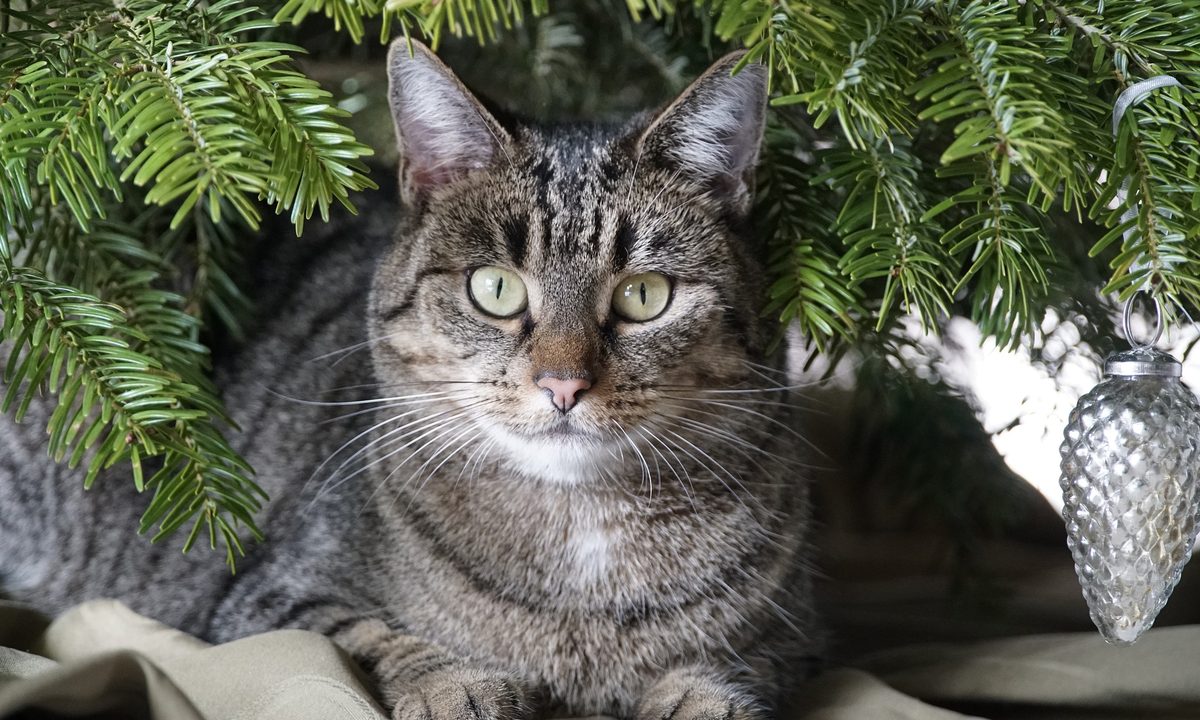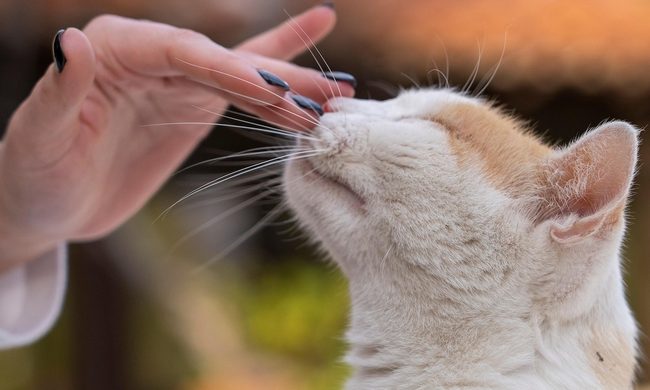Even the smartest cats can’t always help themselves around Christmas trees. Evergreens seem to provide endless entertainment for our feline friends. From climbing them and batting at the ornaments to chewing on the lights, there's always something compelling for cats to do while the tree is up!
Cats and Christmas trees have been the subject of many memes, TikToks, and even movies. In National Lampoon’s Christmas Vacation, the scene in which Aunt Bethany's cat gets electrocuted while playing with the Christmas lights prompted the famous punchline, "If that cat had nine lives, she just spent ‘em all."
Though the quote from Cousin Eddie may make you laugh every year, you also know that the cult classic film is a work of fiction. Of course, you don’t want anything like that happening to your real-life kitty. Therefore, you'll want to prevent your cat from gnawing on the lights. Here are some reasons why you might find your cat chewing the Christmas tree lights and some ways to stop it.

Why is my cat obsessed with lights?
It's not just the Christmas season that causes our kitties to go bonkers for light. You may find your cat mesmerized by illumination at all times of the year (and don't even get us started on the laser pointers). While this instinct might get amped up during the holidays, remember that felines can't actually see red and green (their vision is more similar to a human's who is color-blind). In general, they don't perceive colors nearly as intensely as we do.
But on the flip side, they see light way better, which is why they can navigate the dark so well. Switching to white light or different bulbs won't do the trick — your pet will be drawn to them as a shiny new glow.

Why you’ll find your cat chewing the Christmas tree lights
Your crazy kitty can’t comprehend cautionary tales like the one in National Lampoon’s Christmas Vacation. For your cat, the chance to chew holiday lights can feel like an extra reason to celebrate the holiday season. Cats are drawn to the tree lights because:
- Lights look interesting, resembling a shiny new toy.
- Cats use their mouths to explore.
- Chewing is a way to soothe teething.
- Playing with lights satisfies boredom.

Don’t encourage the behavior
Chewing lights is a cat behavior you’ll want to nip in the bud. In addition to electrocution risks, lights can also cause severe burns. Getting your cat to listen may be a bit of a challenge, but there are ways to curb their light-chewing tendencies.
Seeing your cat jump high into the tree can seem impressive and funny at first glance. Cats will be cats, right? Though it’s tempting to clap in awe or laugh and shake your head, these reactions will only encourage unsafe behavior.
Step 1: Don't yell. Yelling at the cat likely won’t help the matter — it may only scare the kitty.
Step 2: Try to stop chewing before it happens. If you notice your cat eyeing the lights, redirect her to her favorite toy or lightly shake a jar with something such as dried beans in it to distract her.
Step 3: Invest in some training. Teaching your cat to "come" or "leave it" will also benefit your household.

Watch wires
As intriguing as the lights look, the cat might be even more excited about the wires. In these cases, the lights are just attracting initial attention. Damaged electrical wires not only pose an electrocution risk but a fire hazard as well. Pet-proof cord protectors put a barrier between your cat’s teeth and the wire, reducing these risks.

Secure your tree
Keeping your cat out of the tree in the first place is the best way to prevent problems.
Step 1: Some cats don’t like the way aluminum foil feels on their paws, nor do they particularly enjoy the crinkling sound it makes. Putting some at the base of the tree can ward off curious cats.
Step 2: Garden stones at the tree's base can serve a similar purpose as aluminum foil.
Step 3: You can put a tree skirt over the foil or stones to hide them if it’s not a look you love.
Step 4: If possible, consider putting a baby gate around the tree or even setting the tree up in a room with a door you can close when you are not home.

Use scent and taste
Anti-chew sprays and deterrents can make gnawing on lights an unpleasant enough experience that your cat may think twice before landing himself on the naughty list. Some taste bad, while others don’t smell great to the cat.
Step 1: Get your vet's advice. Speak with your veterinarian before using these products to ensure there aren’t any allergens in the spray, particularly if your cat has asthma.
Step 2: Wait for your cat to be elsewhere. Don’t spray them around the cat.

What do you do if your cat eats a Christmas tree?
Unfortunately, if your kitty actually gets her mouth on either the tree or the lights, you may need to call in the experts. Evergreens have oils that can cause diarrhea, vomiting, and mouth sores. Lights or ornaments may wind up with broken glass or other hazardous small pieces that can lead to injury. However, some small plastic lights are relatively harmless — if your cat swallows one whole she'll likely just pass it.
No matter what, you want to discuss with your cat doctor, but you might just keep an eye on your animal for a bit before taking any drastic measures.
Some cats can’t seem to help themselves around Christmas decorations, particularly lights. Chewing tree lights can be a fun, soothing, and interesting experience for kitties. The problem is that it’s also extremely dangerous. Cats can get electrocuted or suffer from severe burns. What’s more, damaged cords present a fire hazard.
Even if it looks funny to see your cat in your tree, it’s important to discourage this behavior. Redirect your cat with other toys or treats, and consider protecting your tree with a deterrent, aluminum foil, or garden rocks. Keeping your tree behind a baby gate or closed door and covering wires with protectors can also reduce risks.





